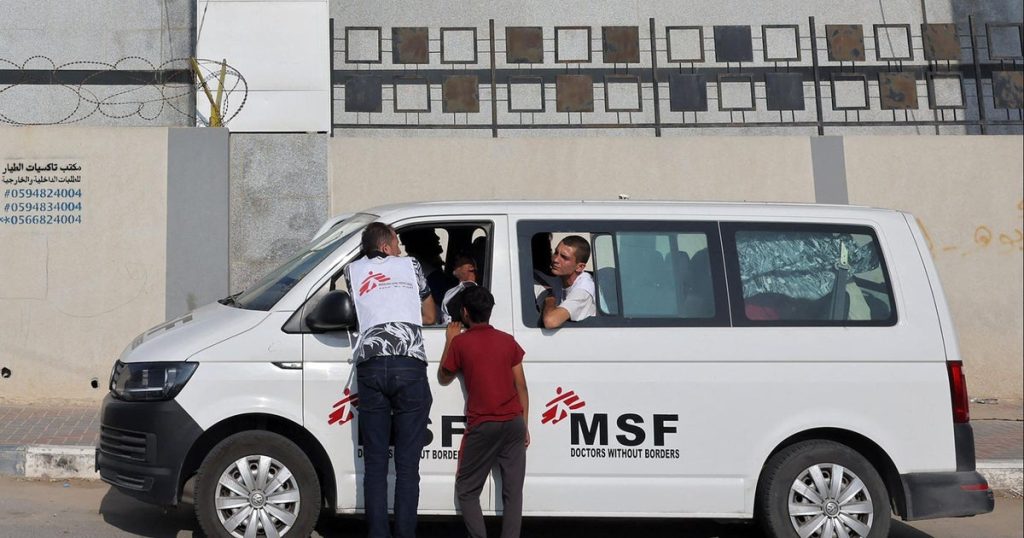In a disturbing escalation of violence in South Sudan, the medical charity Doctors Without Borders has reported that its facility in Old Fangak was hit by an aerial bombing incident that resulted in the tragic deaths of at least seven individuals, including a 9-month-old infant. The attack, which occurred in a region already struggling with medical shortages, has left approximately 25 others injured and has prompted calls to condemn such actions against humanitarian organizations. This event highlights the dire situation in South Sudan, where medical services are critically lacking and civilians live in fear of further attacks.
| Article Subheadings |
|---|
| 1) Details of the Aerial Attack |
| 2) Impact on the Local Community |
| 3) The Role of Doctors Without Borders |
| 4) Political Context and Consequences |
| 5) International Reactions and Future Outlook |
Details of the Aerial Attack
The bombing occurred shortly after 4 a.m. local time, targeting the hospital operated by Doctors Without Borders, a facility that serves as the sole source of medical care for the region’s inhabitants. Eyewitness accounts indicate that the area was struck by multiple airstrikes, leading to panic and chaos among the local population. Local officials, including Biel Butros Biel, the Commissioner of Fangak County, confirmed the fatalities and reported that the aerial attack also caused numerous injuries. Early investigations revealed that the assault resulted in significant damage to the hospital’s pharmacy, obliterating all available medical supplies, which were crucial for the treatment of patients.
Impact on the Local Community
This attack has sent shockwaves throughout the community, which is already grappling with the impacts of flooding and displacement. The hospital in Old Fangak serves approximately 40,000 residents, many of whom are vulnerable and lack access to essential healthcare services. The indiscriminate nature of the bombing casts a pall of fear over the locality, as civilians remain at risk of further violence. Approximately 25 residents were reported injured, and a comprehensive assessment of the attack’s impact is still in progress. Many survivors are left traumatized, concerned about their safety and that of their families as more airstrikes have been reported in the vicinity.
The Role of Doctors Without Borders
Doctors Without Borders, known by its French acronym, MSF, has long been a key provider of medical assistance in conflict zones and regions afflicted by humanitarian crises. The organization has condemned the attack on its facility, labeling it “a clear violation of international humanitarian law.” The MSF head of mission emphasized that the destruction of its hospital disrupted critical healthcare services, further exacerbating the dire health conditions prevalent in South Sudan. The loss of medical supplies and the facility’s operational capacity will have lasting effects on the community, potentially resulting in increased morbidity and mortality rates among the local populace.
Political Context and Consequences
The bombing incident cannot be viewed in isolation; it forms part of a broader pattern of military aggression directed towards opposition groups in South Sudan. Old Fangak lies within a predominantly Nuer ethnic region of the country, historically associated with opposition factions led by Riek Machar, the country’s first vice president. Recent months have seen escalating military actions, with government forces reportedly launching numerous airstrikes, many with support from neighboring Uganda. These actions appear calculated to stamp out dissent and further consolidate power among those loyal to the current administration.
International Reactions and Future Outlook
The attack on the hospital has drawn international condemnation, highlighting the ongoing struggles faced by humanitarian organizations in conflict zones. Public statements from global leaders and human rights advocates underscore the need for accountability and immediate reforms to protect medical facilities in war-torn regions. The future appears grim for civilians in South Sudan, as the ongoing conflict continues to jeopardize humanitarian efforts and public health. Concerns abound over the immediate need for intervention to safeguard not only medical workers but also the vulnerable populations they serve.
| No. | Key Points |
|---|---|
| 1 | An aerial attack on the Doctors Without Borders facility in South Sudan resulted in at least seven fatalities. |
| 2 | The hospital served as the only source of medical care for approximately 40,000 residents. |
| 3 | The bombing sparked widespread panic and further displacements of civilians in the region. |
| 4 | Previous government-led airstrikes have targeted opposition groups in the area since March. |
| 5 | International condemnation has arisen from the incident, signaling a need for protective measures for humanitarian efforts. |
Summary
The aerial attack on the Doctors Without Borders facility in Old Fangak stands as a tragic reminder of the deteriorating humanitarian situation in South Sudan. With its sole medical facility now compromised, the local community faces serious threats to its health and safety. The incident underscores the urgent need for both local and international actors to prioritize the protection of civilian spaces and work towards restoring peace in this beleaguered nation.
Frequently Asked Questions
Question: What does Doctors Without Borders do?
Doctors Without Borders, also known as Médecins Sans Frontières (MSF), provides emergency medical assistance to populations affected by conflict, epidemics, disasters, or exclusion from healthcare.
Question: Why is the attack on a hospital significant?
Attacking a hospital constitutes a violation of international humanitarian law, which seeks to protect civilians and medical facilities during armed conflicts.
Question: What has been the recent political situation in South Sudan?
The political environment in South Sudan has been marked by conflict between the government and opposition factions, leading to violence and instability, particularly in regions like Fangak County.
